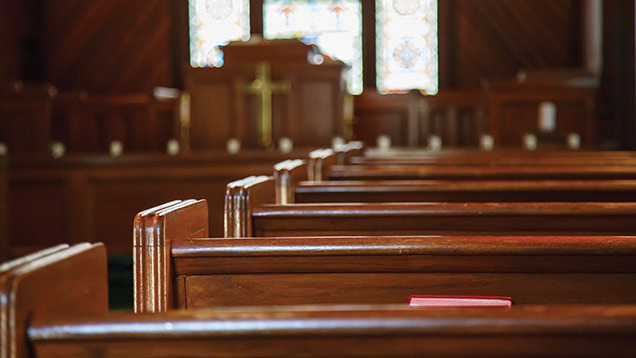Nasty religious people or revolutionaries?
 CREDIT: DBVIRAGO / ISTOCK / THINKSTOCK
CREDIT: DBVIRAGO / ISTOCK / THINKSTOCKNot all churchgoers are radicalized extremeists; churchgoers are often surprised by the general public's perception of them.
Does church make you nastier? It is not unusual to hear people say that religion makes us mean.
In the wake of the Paris Nov. 13 attacks, it is tempting to write off all religious faith as inherently prone to making fanatics of true believers, and to making young people, including college students, judgemental.
In an article posted on The Drum website last week, Simon Smart discussed a University of Chicago study that claims to prove the aforementioned statement.
Smart observed that the study looked at 1,170 children aged five to 12; 24 per cent of them identified as Christian and 43 per cent as Muslim.
Smart’s discussion focused on the children who identified as Christian. He said that, certainly, the relationship between faith and behaviour is contentious.
Many secular folks live extremely admirable lives, and the lives of many of the faith leave something to be desired.
According to Smart, one weakness of the Chicago study is that it doesn’t recognize that for a child to make a negative judgement about someone’s actions does not necessarily mean that the child is nasty. It could mean that the child is more empathetic.
For example, a kid who attends church children’s classes regularly could be more likely to judge that verbal abuse is wrong than the secular grade two neighbour next door who has never been taught Jesus’ command to love your neighbour as yourself.
This brings me to the main observation Smart makes. It concerns the claim that young Christians are more likely to be mean. He said that flies in the face of what happens in the real world.
I was reminded of this when I opened up my mail this morning from Inter-Varsity Christian Fellowship, a student organization with which in the past I’ve had a lot of association.
Inside, I notice pictures of groups of smiling young people and one caption that reads, “Many non-Christians take a step towards Jesus during our international Christmas camps as they witness community and fellowship.”
Church folks, who like myself, are believers in Jesus, would be surprised to discover their Christian communities described as seed beds of fanatical indoctrination, judgment and intolerance.
Certainly, the two-dozen people I met with last night in a church hall to discuss how we can welcome refugees entering our area would be surprised. So would the thousands of pastors and priests in this country serving small rural churches who can provide only substandard salaries. So would the staff of church-run food banks, meal kitchens and crisis shelters provided by London’s churches.
Not to mention your Baptist neighbour, your Catholic roommate and your Anglican mother. Unless they have fallen out of touch with their churches they will know that those communities support faith-based humanitarian efforts from Adelaide St. to Iraq.
The fact that followers of Jesus Christ help people is a global phenomenon. Smart wrote out of an American context. But he quotes Australia MP Andrew Leigh, an atheist. Leigh writes the following.
“Among churchgoers, 25 per cent also participated in a community service or civic association over the same period. By contrast, among non-churchgoers, just 12 per cent participated in a community or civic association…. Regular churchgoers are 16 percentage points more likely to have been involved in a voluntary activity, and 22 percentage points more likely to have helped the needy... Churchgoers are more likely to build friendships with people from a different social class. Those who attend church regularly are more likely to say that they can count among their friends, a business owner, a manual worker or a welfare recipient. Few other institutions… are as effective in… ‘bridging’ [gaps] between rich and poor.”
What’s the solution to ISIS? More bombs? I doubt it. It would be better to support the growth of churches around the planet, and to join in a revolution of faith and love. Go to the next meeting of a local church to learn about supporting Muslim refugees entering the city. Volunteer at a local food bank or crisis shelter. Your life may change. And you may find yourself caught up in an irresistible movement of love.
Editorial opinions or comments expressed in this online edition of Interrobang newspaper reflect the views of the writer and are not those of the Interrobang or the Fanshawe Student Union. The Interrobang is published weekly by the Fanshawe Student Union at 1001 Fanshawe College Blvd., P.O. Box 7005, London, Ontario, N5Y 5R6 and distributed through the Fanshawe College community. Letters to the editor are welcome. All letters are subject to editing and should be emailed. All letters must be accompanied by contact information. Letters can also be submitted online by clicking here.














